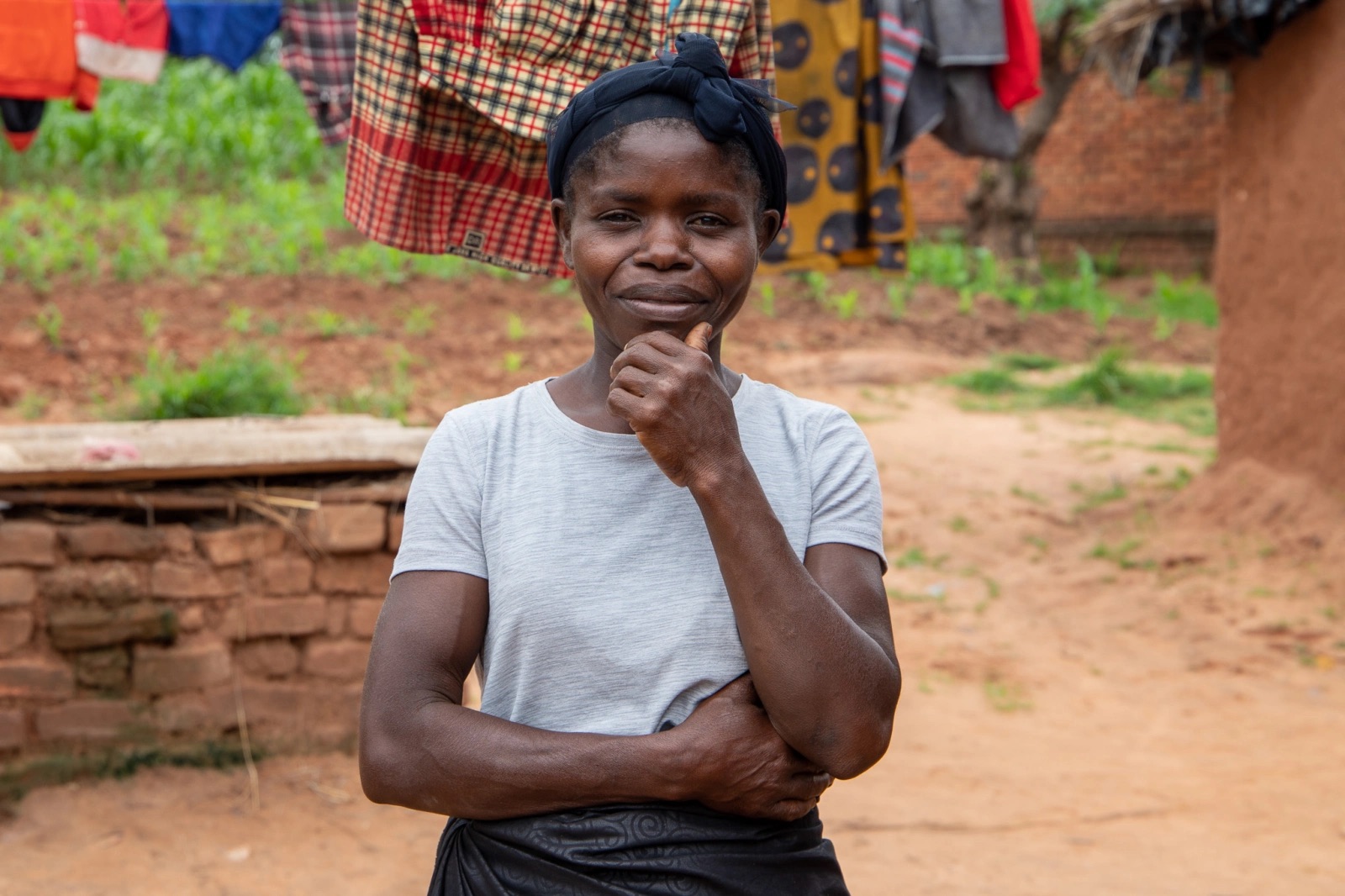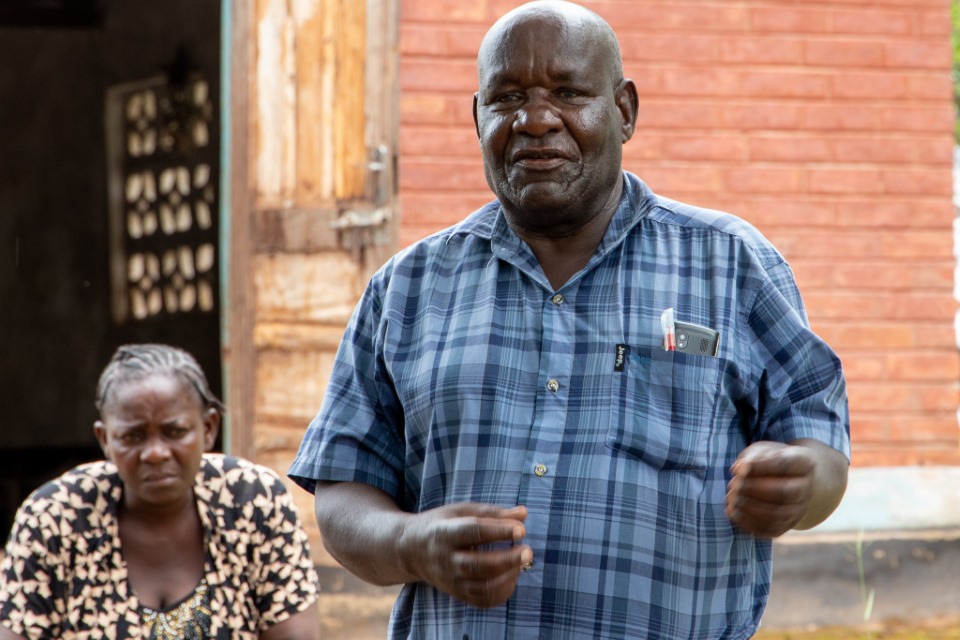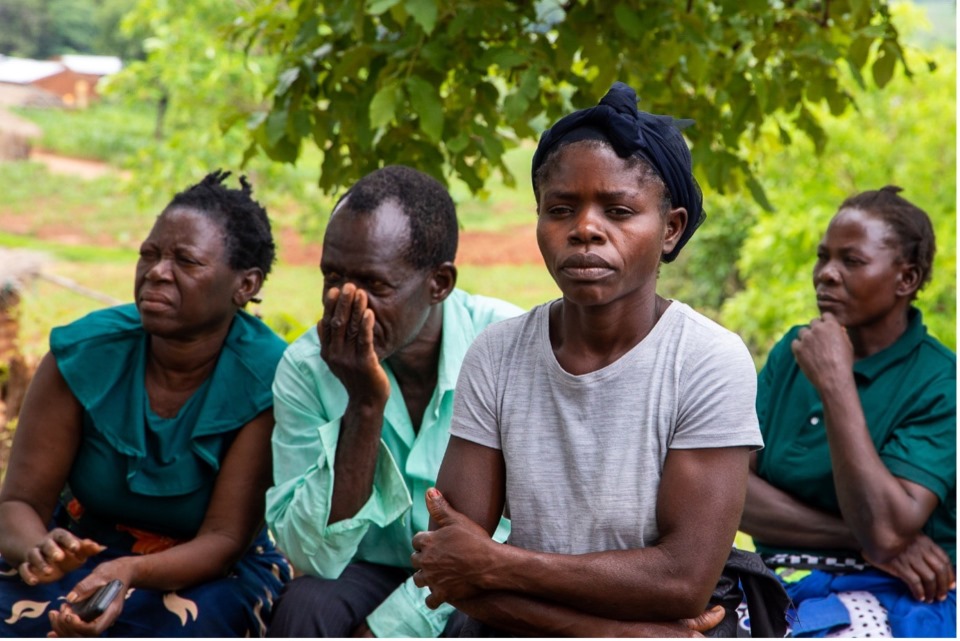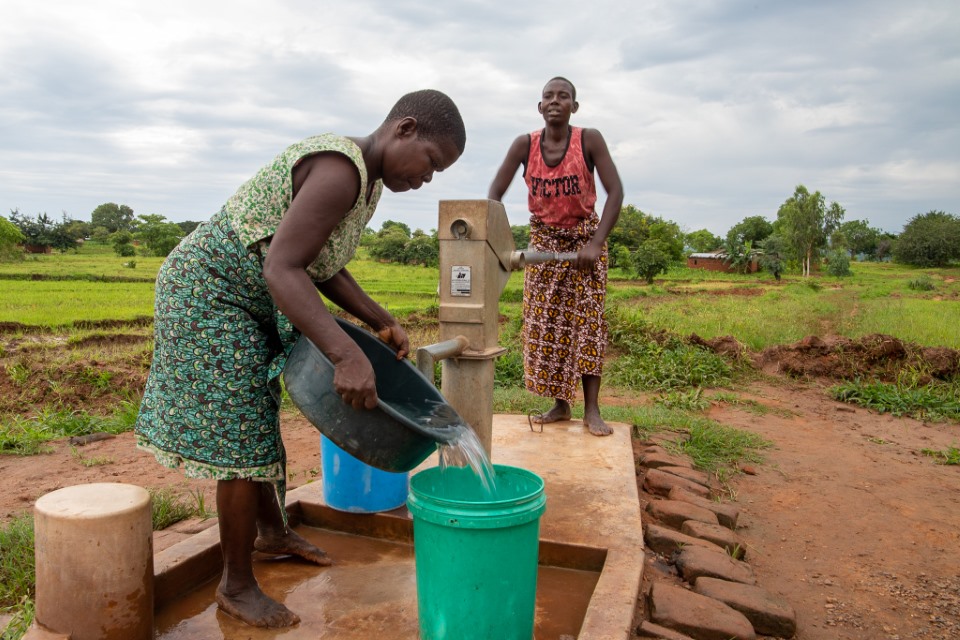
Mother to four and miner Temwa Gondwe worked under inhumane conditions in the mines of Malawi until she decided to raise her voice. That decision has paid off for her entire village.

Under a tree in Karonga, Malawi, dozens of people are seated. At first glance, it looks like a regular break in the shade from the sun. But what we see is something completely unique, something we haven't seen before. Those sitting here couldn't stand the sight of each other not too long ago.
"Now I'm not afraid of anything anymore," smiles Temwa Gondwe.
In 2021, Norwegian Church Aid went into the mines in Malawi, where we uncovered terrible working conditions. Long days without breaks, deep inside the mountains with no protective gear, lights, or masks.
There was no water or toilets. Criticizing the mining company meant risking getting fired, and many worked without getting paid. No one had employment contracts, and there was no compensation for accidents.
The villages we passed on the way to the mines were covered in coal soot, the roads were destroyed, and the water was contaminated. All the children were coughing with lungs full of dust. Together with our partner from the Catholic Church, we have since fought against modern slavery in the mines. Now we have returned to see how things are, and we meet together under the tree.
Those sitting there are the miners and the owners. There has been a high level of conflict between them for years. Workers who tried to speak up either lost their jobs or their wages.
But since we were there last, we have established a committee working to improve conditions in the mines. Employees in the mines and representatives from the owners must regularly meet to discuss what is difficult and challenging. Norwegian Church Aid facilitates it all along with our partners, and Temwa is a permanent member of the committee.
"In the beginning, it was scary to meet face to face. I was afraid of getting fired if I said what I thought," she explains.

Since they established the committee, things have started to happen.
"We have implemented an eight-hour workday with breaks; we have doubled our wages, and we have received protective gear, water, and toilets," she says.

She cannot emphasize enough how important it is to be able to speak directly with the owners and bosses without fearing the consequences.
"Now we can collaborate for the benefit of everyone."
Although Temwa and the committee have improved, there is still much to address. Safety is still poor, no one has employment contracts, and there is no accident insurance. Even with better pay, it doesn't always come when it should.
"Life is still difficult, but much has improved. As a single mother of four children, it's tough, but we survive," says the 35-year-old.
On the other hand, the mine owners blame difficult economic times. They tell Norwegian Church Aid that there is not always a match between supply and demand, and employees should be grateful for having jobs in local mines. At the same time, they appreciate the dialogue that has emerged through the committee.
"Now we understand and respect each other in a different way, and we hear directly what is not good," says Jonathan Jmatandara, the chief at Lisikwa Cole Mine.
He admits that there has been a lot of pressure from Norwegian Church Aid, the media, and now the employees themselves to bring about changes.
"We have, among other things, provided protective gear, water, toilets, and repaired buildings," he says.
The water around the mines has been polluted by the industry for years. This water is what families in the surrounding areas have been drinking and using for cooking. Many have been sick due to the dirty water, and there has been a significant debate about who should ensure the water's safety.
Are the authorities responsible for allowing mining, or are the mining companies responsible for destroying water quality?
After significant pressure from Norwegian Church Aid, both the authorities and mining companies have built wells. Like here in the village of Muryabweka, where 150 people have access to clean water.
Both Miriam Gondwe and Jenipher Kondowe say they have not had cholera or other waterborne diseases since they got the well.
"Above all, this water has had a significant impact on our children," they say.

Photos: Håvard Hovdhaugen /NCA.